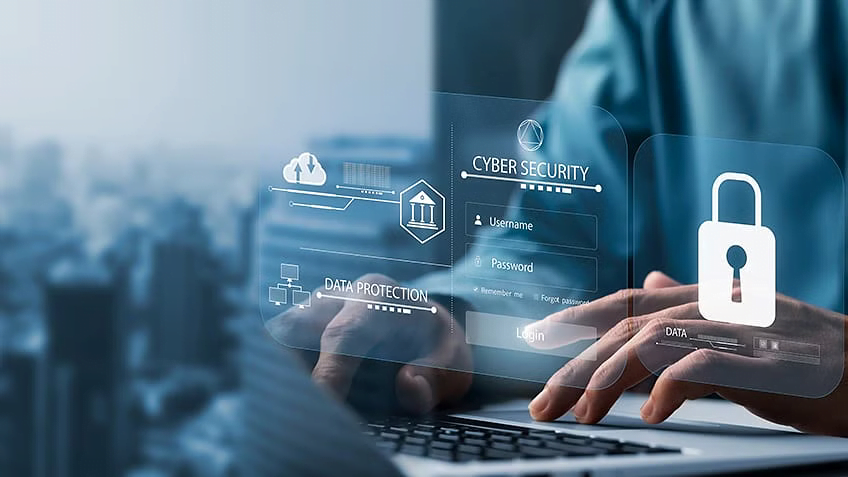What makes a cyber security assessment so important?
There have been some incredible advances in technology that have made business more convenient, profitable and exciting. However, as technology advances so do the threats that can impact your business’ growth and success. The potentially devastating consequences of a cyberattack have made a cyber security assessment more important than ever to safeguard our digital activity.
In the Australian Cyber Security Centre Small Business Survey, the vast majority of business owner respondents said cyber security was ‘very important’ to their business, but admitted to having ‘below average’ understanding of why. These insights reveal that while business leaders generally agree that cyber security is important, there is still a lack of knowledge regarding the impact and the measures available to minimise them.
Here are four big reasons it’s important to pay closer attention to cyber crime.
1. Cyber risk has become a costly concern for business
As a result, the Australian Cyber Security Centre (ACSC) receives a cybercrime report every seven minutes on average, leading to over 76,000 cybercrime reports and more than $98 million in financial losses due to cybercrime across Australia.
2. ‘Data’ is too broad a term to ignore
Depending on your business, you might consider some data more important and take appropriate measures to prioritise what you believe to matter most. However, all data matters, as it broadly defines all digital information related to financial details, personal information or access codes like passwords. A successful attack can take advantage of vulnerabilities where security might be lacking, not only causing immediate damage but lingering effects that impact operations in the future.
3. Cyberattacks are becoming more sophisticated and sinister
“Old school” scams (like chain emails and princes requesting money) were once easy to spot, and some business owners may have seen little value in investing in cyber security systems if they had a keen eye. Now, cyberattacks are being specially designed to catch us unawares and do serious damage, such as:
- Phishing attacks, which involve sending fraudulent emails, messages, or websites that impersonate legitimate sources to trick individuals into revealing sensitive information such as passwords, credit card details, or even granting unauthorised access. They remain one of the most prevalent and effective methods used by cybercriminals.
- Ransomware attacks, which involve cybercriminals encrypting an organisation’s data to demand a ransom for its release.
- Malware and spyware, which are malicious software programs designed to infiltrate systems and steal information by spreading through infected files, software downloads, or compromised websites.
- Social engineering attacks, which involve impersonation, pretexting, or manipulating your emotions into divulging sensitive information or performing actions that compromise security.
4. Successful cyberattacks hurt more than just your business
Cybercriminals can not only steal employee data through your system, but they can also target your supply chain to gain unauthorised access. This can be successful if there are weaknesses in third-party vendor or supplier systems, which ultimately impact your partners.
How to improve your business’ defence against cyber security threats
In the face of these threats, taking proactive steps to enhance your cyber security is imperative. Here are some cyber security strategies to protect against threats.
Conduct a cyber security assessment: A cyber security assessment is a proactive and systematic approach to assessing your business’ security measures, identifying vulnerabilities, and ensuring compliance with regulations. It is a critical component of your overall risk management strategy and is essential for protecting sensitive data, maintaining business continuity, and upholding customer trust.
Secure your network: Protect your network with a strong, unique password. Consider using a firewall and encrypting your Wi-Fi network to prevent unauthorised access.
Stay alert, stay cautious: Exercise caution when clicking on links or downloading attachments from unknown sources. Verify the legitimacy of emails and messages before sharing any personal information.
Education and awareness: Stay informed about the latest cybersecurity threats and best practices. Regularly educate yourself and your family members about potential risks and how to identify suspicious activity.
Update software and back up data regularly: Keep your operating systems, applications, and antivirus software up to date. Updates often include security patches that address known vulnerabilities. It’s also important to regularly back up your important data to an external source to in the event of a ransomware attack or data loss.
Strong passwords and authentication: Use strong, unique passwords for each online account and enable two-factor authentication (2FA) whenever possible. This adds an extra layer of security by requiring a secondary form of verification.
Get ahead of threats by arranging a cyber security assessment with IT Logic
Assessing the potential risk to your business is extremely valuable but can be difficult without the right support.
That’s where IT Logic comes in. We are offering a complimentary cyber security assessment that includes an initial review of your current firewalls, security software and regulatory compliance*.
We’ll also provide recommendations of how you can address issues and capitalise on strengths that are discovered throughout the assessment.
We are here to provide expert cyber security solutions tailored to your business, so that you have all the resources and information you need to operate with confidence in the digital world.
Click below to register for an assessment and we one of our experts will be in touch soon!
*The security software and regulatory compliance will use the ACSC Essential 8 as a guide.
Sources:






